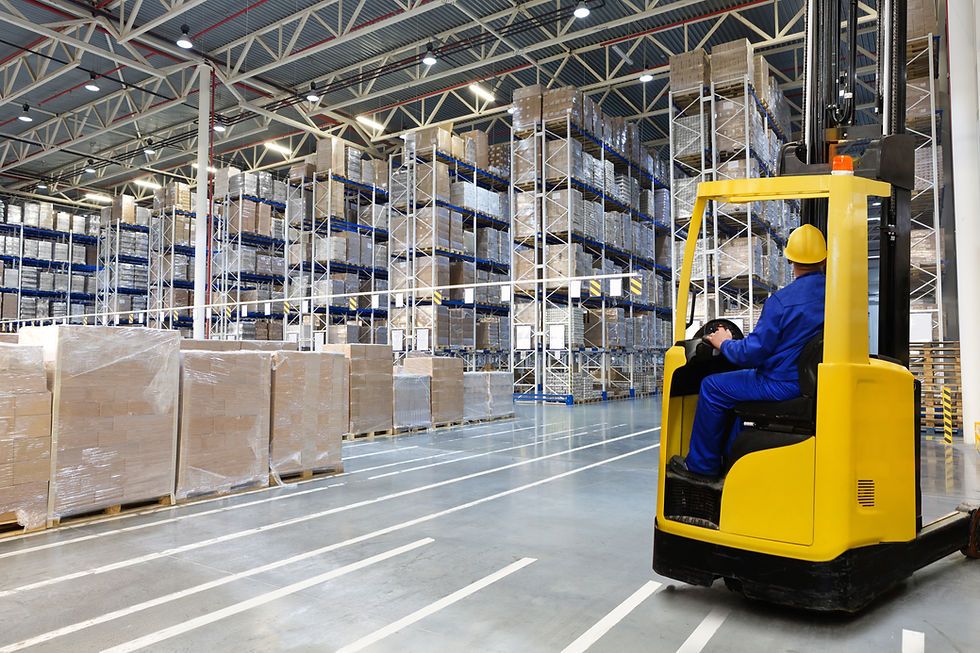The Rise of Smart Buildings: How Technology is Redefining Commercial Real Estate Value
- Analysis by Current Business Review

- Mar 8, 2025
- 4 min read

The commercial real estate industry is experiencing a technological revolution. Traditional office buildings, industrial spaces, and retail centers are no longer just about location and square footage—they are now judged by their technological sophistication, energy efficiency, and ability to integrate smart systems.
From AI-powered building management to sensor-driven energy optimization and tenant experience platforms, smart buildings are reshaping the real estate market. Investors and developers who embrace these innovations are seeing higher asset valuations, reduced operational costs, and stronger tenant demand—while those who resist risk falling behind in an increasingly competitive landscape.
So, how are smart buildings changing the way commercial properties are designed, valued, and operated? And what does this mean for investors, developers, and corporate tenants looking to secure their place in the future of commercial real estate?
What Defines a Smart Building in 2025?
Smart buildings are not just about automation—they are designed to be more efficient, more responsive, and more profitable through cutting-edge technology. A truly smart commercial property integrates:
• AI-driven property management – Automating maintenance, security, and energy systems for cost reduction.
• IoT-enabled sensors – Real-time monitoring of occupancy, air quality, temperature, and energy usage.
• Sustainable energy solutions – Solar panels, battery storage, and smart grids to reduce carbon footprints.
• Predictive analytics – Using AI to anticipate maintenance needs, reducing downtime and unexpected costs.
• Enhanced tenant experience – Touchless entry, smart climate control, and automated concierge services.
These technologies not only improve building performance but also increase property value, making them a must-have for future-proof investments.
Why Smart Buildings Are Outperforming Traditional Real Estate Investments
Investors and developers are increasingly shifting towards smart buildings because they offer tangible financial benefits that go beyond traditional real estate metrics.
1. Higher Property Values & Investment Returns
• Smart buildings command higher rents because they offer lower operational costs and premium features.
• Tenants are willing to pay more for high-tech, energy-efficient spaces that reduce their expenses and enhance productivity.
• Properties with AI-powered energy management have been shown to increase their market value by up to 15%.
2. Lower Operational Costs & Sustainability Incentives
• Automated HVAC systems and smart lighting cut energy costs by up to 40%, making buildings significantly more cost-effective to operate.
• Many governments are offering tax breaks and incentives for buildings that meet ESG (Environmental, Social, and Governance) criteria, encouraging developers to invest in sustainable technologies.
• AI-driven maintenance systems reduce repair costs and extend the lifespan of key building infrastructure.
3. Increased Tenant Demand & Lease Retention
• Corporations looking for office space are prioritizing smart, energy-efficient buildings over older properties with high overhead costs.
• Retail centers and industrial warehouses using AI-powered logistics are seeing higher demand from e-commerce and last-mile delivery firms.
• Tech-driven tenant experience platforms are leading to higher lease renewal rates, reducing vacancy risks for property owners.
As a result, investors who modernize their commercial real estate portfolios with smart technology are securing higher long-term returns and stronger asset resilience.
How AI and IoT Are Reshaping Commercial and Industrial Spaces
1. AI-Powered Property Management
• AI is being used to optimize space utilization, automate building maintenance, and predict repair needs before failures occur.
• Smart algorithms analyze foot traffic and tenant usage patterns, allowing landlords to adjust lease pricing dynamically.
• AI-driven chatbots and virtual assistants enhance tenant experience by providing real-time support.
2. Energy Efficiency & Smart Grids
• Buildings with smart grids and battery storage systems can self-regulate power usage based on energy demand, reducing utility costs.
• AI-driven HVAC systems learn tenant preferences and adjust climate control without manual input, improving comfort while saving energy.
• Some commercial buildings are even selling excess energy back to the grid, creating a new revenue stream for owners.
3. Smart Security & Access Control
• Traditional keycard entry systems are being replaced by facial recognition, biometric access, and blockchain-based security.
• AI-powered surveillance detects security threats before they happen, alerting property managers in real-time.
• Cybersecurity for IoT-enabled buildings is becoming a major investment priority as hackers target smart infrastructure.
The commercial properties that embrace AI, automation, and IoT are seeing significant competitive advantages, while older buildings without these capabilities are becoming obsolete faster than ever before.
The Smart Building Boom: Key Markets and Trends in 2025
Smart commercial real estate is seeing rapid adoption in key global markets that are embracing AI-driven infrastructure:
• Dubai & Singapore – Leading in high-tech, ESG-friendly commercial developments.
• New York & London – Major financial hubs where office buildings are integrating smart security and predictive maintenance tech.
• San Francisco & Shenzhen – AI-driven real estate hubs focused on automated leasing and IoT-enabled workspaces.
The commercial property market is shifting towards a technology-first approach, and cities that embrace these innovations will see higher investment and rental demand.
What This Means for Investors, Developers, and Tenants
The rise of smart buildings is not just a trend—it’s the new standard for commercial real estate. Whether you’re an investor, developer, or corporate tenant, the message is clear:
• Investors – Properties with AI, automation, and energy efficiency deliver higher returns, lower operational costs, and increased tenant retention.
• Developers – Future-proofing commercial buildings with smart technology is now a requirement for attracting premium tenants and investors.
• Tenants – Businesses should prioritize leasing smart buildings to reduce expenses, improve sustainability goals, and attract top talent.
By embracing technology-driven commercial spaces, the real estate industry is not just adapting to change—it’s defining the future of urban development.




Comments